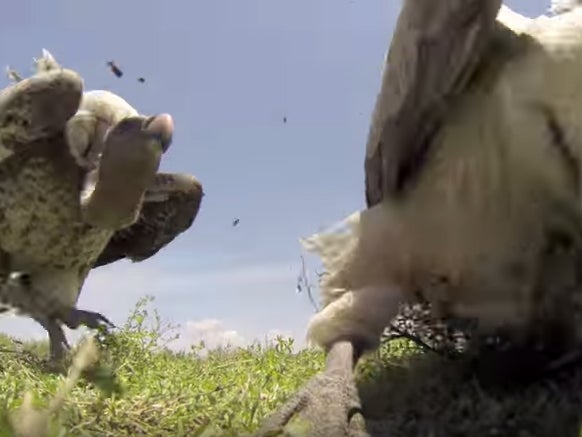Researchers demonstrate what it is like to be eaten by vultures
National Geographic magazine placed a camera inside a wildebeest as vultures began the scavenge its remains.

Researchers in the Serengeti placed a Go-Pro inside a wildebeest carcass in order to capture footage of vultures as they tear the animal apart.
The video raises awareness about declining vulture populations, with the disturbing statistic that in some parts of the world vultures have declined by 95% , mainly because of habitat and poisoning.
The scavengers are also hunted for their bones, feathers and eyes for use in witchcraft. Many experts have predicted that the vulture could be extinct within the next 50-100 years.
The drop in numbers could cause problems for the local population as the birds unique digestive system can prevent the spread of disease; killing bacteria related to gangrene and tetanus.
Join our commenting forum
Join thought-provoking conversations, follow other Independent readers and see their replies
Comments
Bookmark popover
Removed from bookmarks